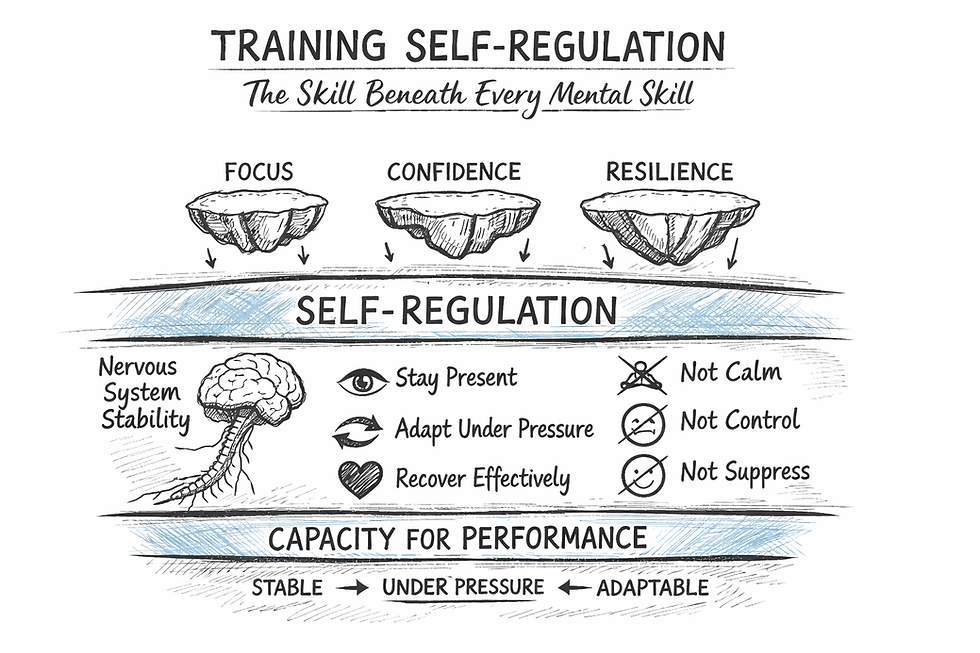Mental Performance Tip: How to manage your self-talk
- Kate Allgood
- Aug 21, 2023
- 3 min read
Updated: Dec 18, 2023
Self-talk is one of the most vital skills to have. It greatly influences whether or not you have confidence or self-doubt; or whether or not you get caught in your head or can focus on the task at hand. Too often, when athletes look at managing self-talk, they look at getting rid of it rather than finding ways to accept it and then redirect their attention to what matters most and can help them at that moment. If you try and get rid of it or fight it, it can only make it worse. Even great athletes sometimes struggle with negative self-talk, but they know how to not let it get in the way of their performance.
There is a great strategy I use with clients to help them with their self-talk. It is called the 3 C's. Catch it, check it, change it.
Catch it
Catch it is all about awareness. Being aware of your self-talk is key; without it, you can't do anything about it, and it will influence your performance without you realizing it. Learning to become more self-aware is a key skill for any athlete. You can become more self-aware through self-reflection and meditation. These two exercises and practices can significantly elevate your self-awareness and, therefore, your ability to manage your self-talk.
Check it
Once you become aware of your self-talk, you can check it and see if it is helping or hurting your performance. If you notice your self-talk is creating self-doubt or nervousness, you can do something about it and make a change. If you see everything is good and your self-talk is helping you, then great!

Change it
If your self-talk needs to be changed, find something to focus on that aligns with the task at hand. I talk to my clients a lot about neutral self-talk. You can do this by focusing on the reality of the situation and what you need to focus on and execute to help you perform. Rather than trying to go super positive with your thoughts, focus more on a thought process that aligns with what you actually need to focus on doing and then do it.
Managing your self-talk through the 3 C's helps you be aware, see if any changes are necessary, and then focus on changing it. This way, you are becoming more of an observer of your self-talk vs. letting the self-talk become you and your performance. Think of it like a piece of equipment that needs to be changed. As an ice hockey player, if my stick gets broken or doesn't feel right, I simply become aware something is off, take a brief closer look, and if the stick needs to be changed, I grab a new one and keep going. This is how to approach your self-talk.
To your success,
Kate
Envision • Execute • Elevate
About: Kate Allgood is trained in the field of applied sport psychology. She holds two Masters degrees in psychology where she graduated with distinction. She has spent the past 14 years working one on one with high school, college, Olympic, and professional athletes to help them with their mindset, mental performance and mental skills training. Kate has also been a consultant for professional teams, including the Anaheim Ducks primary minor league affiliate the San Diego Gulls, to help the team and players develop their mental game. It is important to note that while Kate has graduate school training in applied sport psychology and general psychology, she does not diagnose or treat clinical disorders, and is not a licensed psychologist.
**The information provided is not to dispense medical advice or prescribe the use of any technique, either directly or indirectly, as a form of treatment for physical, emotional, or medical problems, without the advice of a physician. The information provided is only to offer information of a general nature to help you in your quest for high performance. If you know or suspect you have a health problem, it is recommended you seek your physician's advice.



Comments